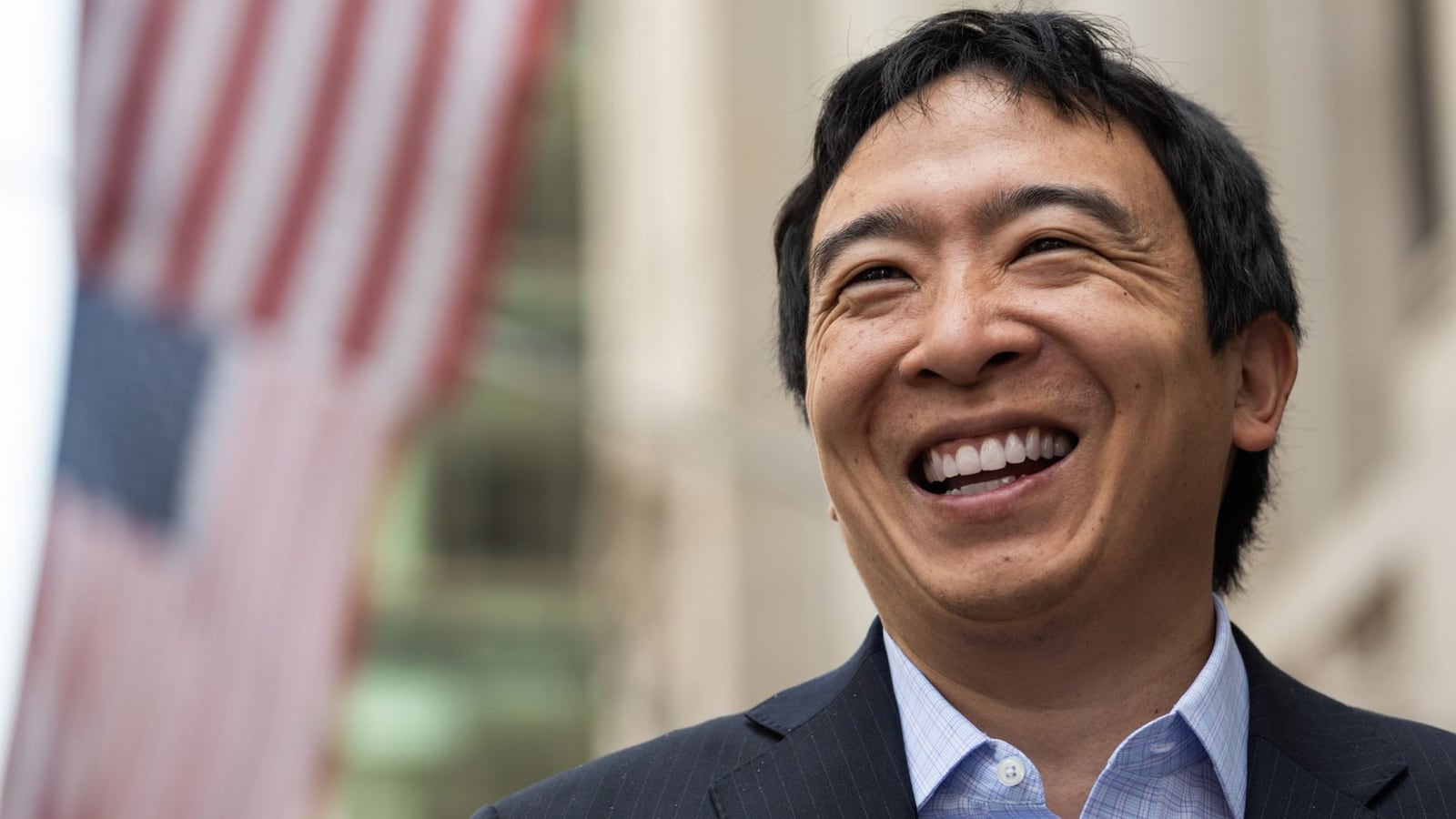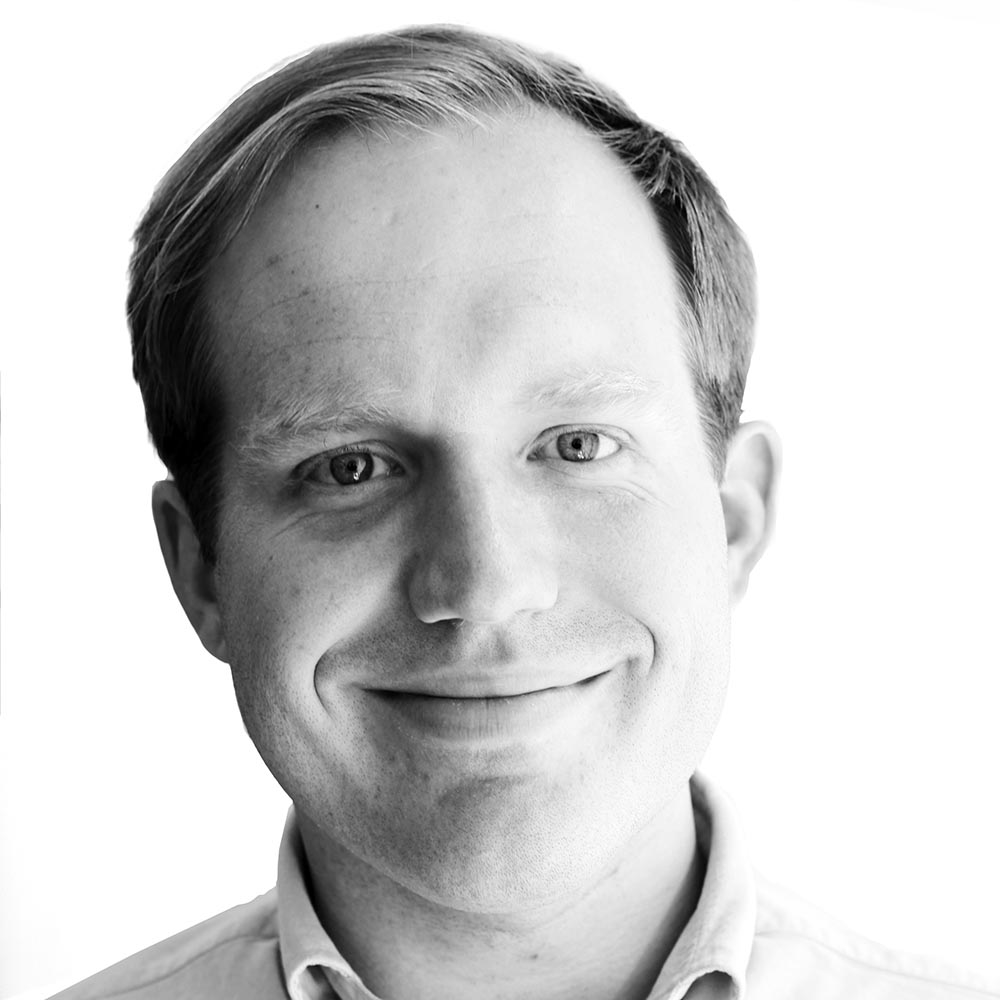Some presidential candidates build their campaigns on grassroots support. Others on personal wealth. Some ride a wave of discontent with the direction of the country. Others launch insurgencies within the party.
And in the year 2019, one candidate is trying to prove that you can find success by going heavy on podcasts and memes.
Andrew Yang has been a Democratic presidential candidate for well over a year. But chances are, you’ve never heard of him. He’s not a lawmaker. He has just over 90,000 Twitter followers. As of Dec. 31, 2018, his campaign committee had $38,730.78 cash on hand. He’s spent a grand total of $33,000 on Facebook ads. And has not run a single TV ad.
And yet, the self-proclaimed “entrepreneur who understands the economy” has somehow managed to get more than 47,000 individual donors to his campaign as of Wednesday night. It’s a figure that’s caught the attention of Democrats on other campaigns. But, more importantly, it’s one that places Yang close to a critical threshold. If that number rises to 65,000 over the next two months, he will qualify to participate in the first primary debate.
He's already met one threshold—that his campaign have a minimum of 200 donors per state in at least 20 states. And his team says he’s a lock to clear the other.
“100 percent. Hell will have to freeze over at this rate for us not to,” said Zach Graumann, Yang’s campaign manager. “We are averaging 1,500 donors a day. Not averaging, that is our baseline. And people don’t even know who he is yet.”
Yang, Graumann predicted, would hit 65,000 donors within two weeks. “Internally,” he explained, “we are jacked.”
Getting on the debate stage would be a huge coup for Yang, an entrepreneur who is little known outside of tech circles. Yang, 44, worked at a series of start-ups before launching Venture for America, a nonprofit that matched aspiring entrepreneurs with fellowships at young companies. Aside from a few commendations from the Obama administration, he has had no experience with politics. Graumann, too, said that this was his first serious venture in political campaigns.
The secret to Yang’s success is both remarkably simple and deeply reflective of how the internet has democratized national politics. He has built his campaign almost exclusively on the idea that America needs a universal basic income as more jobs are eliminated by automation and robotics. And people who are thrilled with the prospect of getting a $1,000 monthly check from the government—which Yang has dubbed the “Freedom Dividend”—have responded by giving to his campaign and creating memes about Yang and spreading them online.
Yang fans on Twitter have gathered around “Andrew Yang Dank Meme Stash,” a Twitter account that pastes pictures of Yang into popular memes. Yang fans have a Reddit forum with nearly 4,000 members, where they share arguments for UBI and still more Yang memes. And his fans are quick to tweet at polling companies or reporters who don’t include Yang on lists of the 2020 Democratic candidates.
But the most critical point in launching Yang on his current trajectory, according to Graumann, was an appearance in February on Ultimate Fighting Championship commentator Joe Rogan’s mega-popular podcast. At the time, Yang had roughly 8,000 donors to his campaign. But the appearance sent Google searches for his name skyrocketing. And in February, Yang raised $570,000 with an average donation of $16.78.
“That’s better than even Bernie,” said Graumann. “Andrew and I are both business people. We deal with numbers and charts. Everything is up and to the right since the Joe Rogan podcast. That was the key. That was the moment.”
Yang’s team has tried to apply his unconventional media approach elsewhere. Days after the Rogan podcast, he sat down with Fox News host Tucker Carlson. He recently taped an appearance on The Breakfast Club, a national hip-hop news radio show.
Word and support of his candidacy has spread to some of the internet’s more vile, yet influential, communities as well. Over the past few weeks, Yang has been the topic of frequent positive 4Chan threads, normally a stronghold for Donald Trump’s most racist supporters. Yang’s UBI proposal has been especially appealing to 4Chan users who embrace the shiftless “NEET” lifestyle (“Not in Education, Employment, or Training”) and would rather play videogames all day than have jobs. 4Chan posters have admiringly started to call Yang’s Freedom Dividend proposal “NEETbux.”
In chat rooms with names like “Meme_Engineering,” 4chan users who count themselves in the “Yang Gang” plotted how they could convince other 4Chan readers to donate $1 to Yang’s campaign, and shared memes promoting Yang’s proposed $1,000 payment. In other rooms, they encouraged each other to flood internet polls with votes for Yang, and made lists of reporters to email about Yang.
Graumann said that the campaign was “unaware” of the 4Chan content and not posting on the site. “It would obviously bother anybody if there were hate-fueled donations coming through our guy,” he added, “that’s not what we stand for. But if tens of thousands of people hear his message and say it will be helpful for their lives—whether through MSNBC or Fox News—that’s the campaign we want to build.”
Yang’s online army includes Sandi Curry, a 62-year-old American expat living in Ecuador. For Curry, who moved to Ecuador in an attempt to make her Social Security check go farther, Yang’s monthly $1,000 payment offers the prospect of making enough to return to the United States.
Curry soon became a member of Yang’s organizing group on Facebook. Now she tells reporters on Twitter not to ignore Yang, and has urged her friends to donate the $1 that will boost Yang’s total donor count.
“I’ve hit up all of my friends, just to say, ‘You need to hear this guy on the debate stage,’” Curry said.
Yang’s appeal hasn’t been grown entirely organically. He has done some smart, if relatively low-key, outreach to Democrats in key battleground states. In December, he took over the Facebook page for the group Progress Iowa to conduct a Q&A session ahead of a keynote address at the organization's holiday party. The following week, he took a swing through South Florida and hosted a pair of meet-and-greets.
For all the progress that Yang has made in building up his donor base, it still may not be enough.
The DNC has said that it will only host a maximum of 20 candidates for their first debate and that it would determine who qualifies based on two thresholds: the 65,000 donors and whether a candidate got more than 1 percent in three separate polls—national or early nominating state polls—leading up to the debate. If more than 20 candidates hit those thresholds then the committee would have to juggle how to keep the numbers manageable, including prioritizing candidates who hit both thresholds and those who hit certain thresholds first.
Yang seems destined to get to 65,000. But he still polls at the back of the pack, when he can manage to even get listed as a candidate. An early February poll from Monmouth University gave him only 1 percent, putting him far behind leading candidates. But other, more-discussed contenders, including Sen. Kirsten Gillibrand (D-NY), former House and Urban Development secretary Julián Castro, and Rep. Tulsi Gabbard (D-HI), also received just 1 percent in the poll.
Graumann, for his part, said he was confident not only that Yang would get included but that the campaign would skyrocket after he got the exposure.
“If we can get Andrew Yang to talk about the freedom dividend on the national stage,” he said, “we believe very strongly he can light the country on fire.”
-- Lachlan Markay contributed reporting





